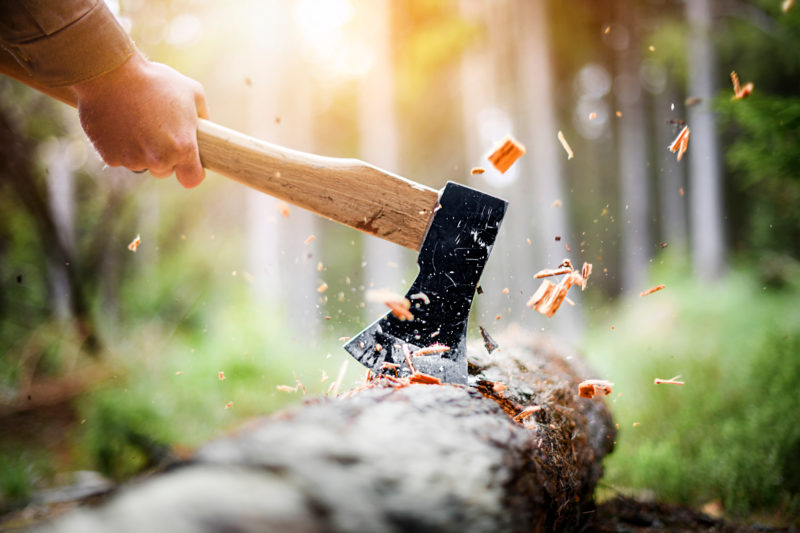By Emilee White
There is a saying, “If you do what you love, you’ll never work a day in your life.” Well, that’s true for professional lumberjack athletes.
Yes, you read that correctly. Out there in the world, there are professional lumberjack athletes who compete against other professional lumberjack athletes at lumberjack world championships. But what does it mean to be a professional lumberjack athlete? Let’s start from the beginning.
The term lumberjack can be traced back to 1831 when it was used to describe a wood harvester, which is just someone who cuts up wood to be used for building or burning. Prior to modern-day technology and the creation of power tools, lumberjacks only had axes and cross-cut saws at their disposal. With all this type of manual labor, lumberjacks were strong. Like, really strong. Not to stroke anyone’s ego, but even with modern equipment, lumberjacks are still very strong and powerful men. During the 19th and 20th centuries, lumberjacks would compete against one another to determine who was the best out of all of them in lumber camps.
Eventually, these logger sports became widely known and in 1960, the Lumberjack World Championship was created. Held annually in Wisconsin, lumberjack athletes compete in sawing, chopping, logrolling, and climbing. The first of its kind, the Lumberjack World Championship demonstrated the strength of such an occupation and continues to do so today. Soon, lumberjack athletes were growing in numbers and the sport became internationally recognized, and the STIHL Timbersports Series was founded in 1985.
Much like Strongman competitions, the STIHL Timbersports Series has six different events varying in woodsmanship and chopping techniques. The sport itself has become so popular that you can watch these competitions on networks like ESPN, ABC, and even Eurosport. And because of all the popularity, kids can now train to be lumberjack athletes, much like football or any other sport.
Jason Lentz was 13 years old when he started competing in lumberjack sports and came from a long line of loggers and lumberjack athletes. In an interview with Chain Saws Direct, Lentz explained that his great-grandfather used to travel from camp to camp and compete against other laborers. Even Lentz’s dad was scarcely home due to traveling for competition. With sawdust running through his veins, as Lentz said, he was ready to pick up the torch and continue the family tradition.
“Wood chopping is part of my life,” Lentz said in Chain Saws Direct’s blog post. “I can always find another day job.”
Photo Credit: Krasula




